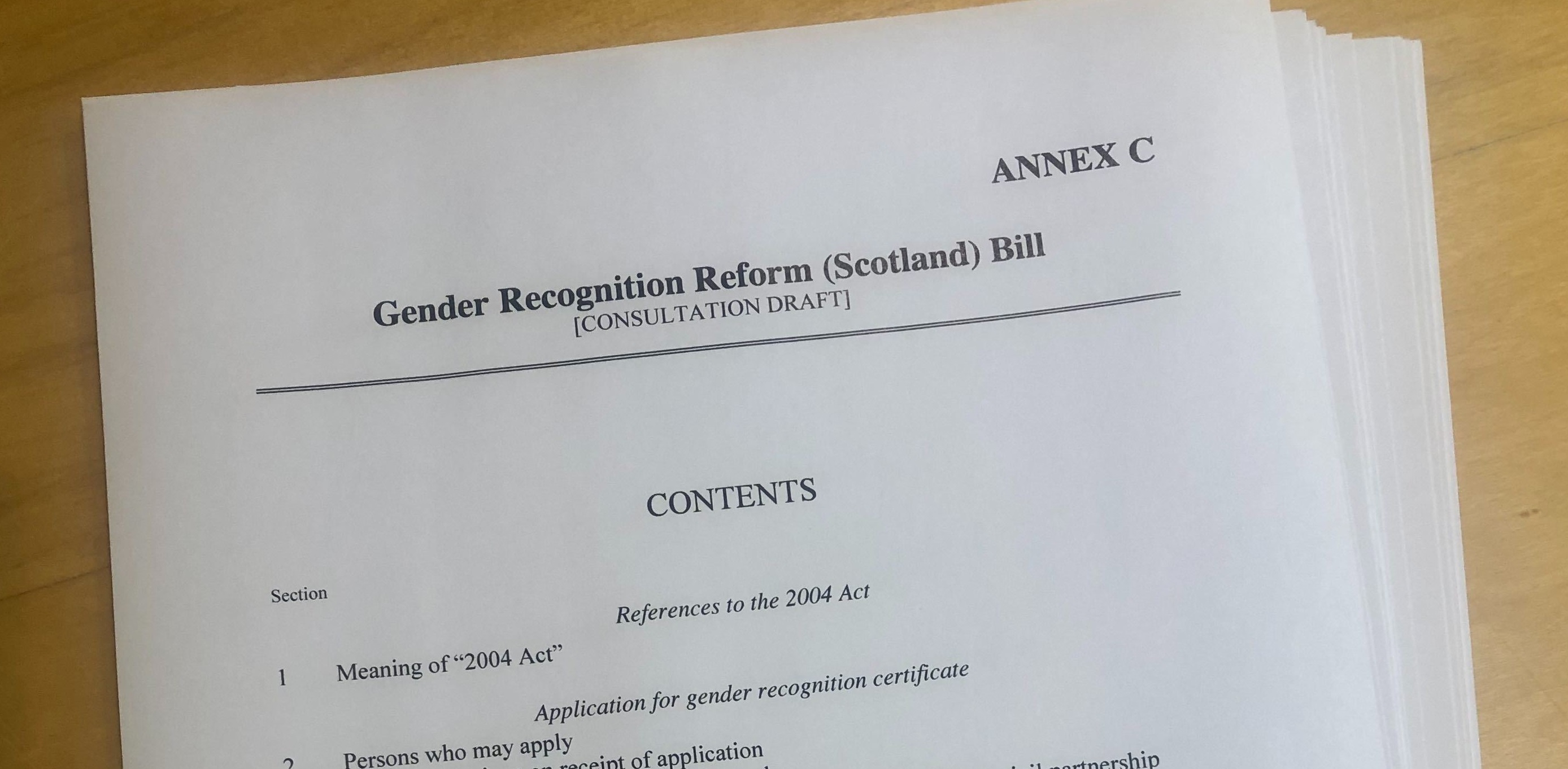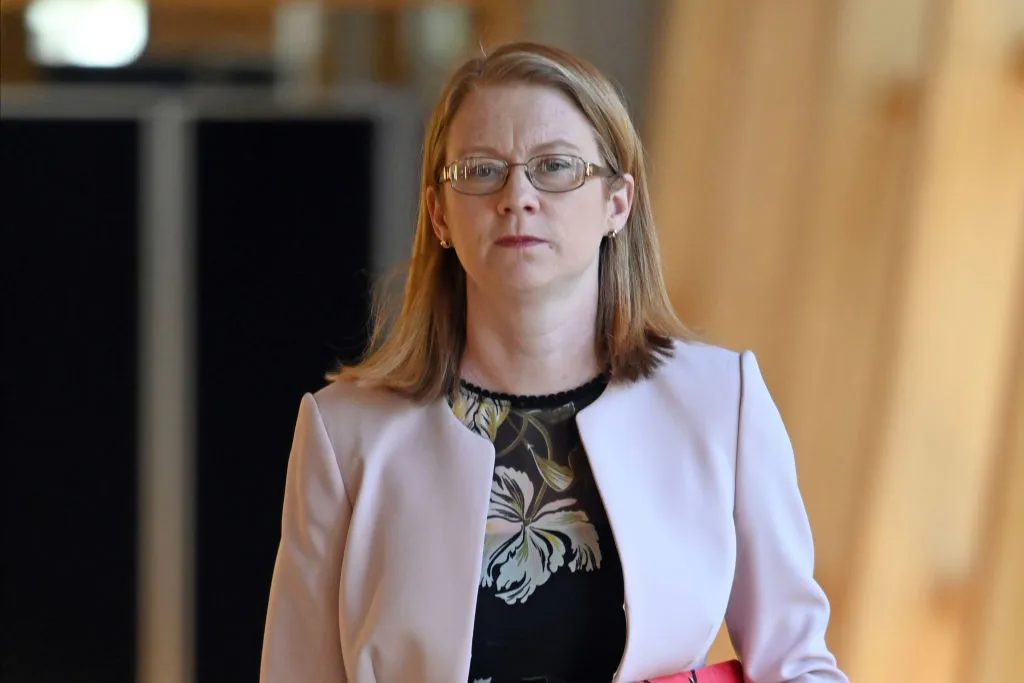Scotland’s First Minister Nicola Sturgeon has published draft plans to reform gender recognition laws and launched a fresh public consultation – despite strong opposition within her Scottish National Party.
Published on Tuesday, the draft bill sets out a new devolved process to replace the UK-wide system of gender recognition – which would end the need to provide medical evidence to a gender recognition panel.
Instead, trans people would be required to make a “a solemn statutory declaration” to Scotland’s Registrar General of their change of gender.
The bill would reduce the period of time it takes to gain legal recognition from two years to six months, and would lower the minimum age of legal gender recognition from 18 to 16.
However, the bill does not include any provisions for legal recognition of non-binary people or under 16s, and does not commit to eliminating the cost of applying for a Gender Recognition Certificate – though the Scottish government insists “it is likely that any fee would be considerably lower” than the current £140 charge.
The draft bill is dated 2021, indicating that the proposals may not be brought forward for at least a year. The formal consultation on the bill closes in March 2020.

The total cost of setting up a self-declaration system is just £300,000, according to the government’s plan – which is less than the Scottish government’s annual expenditure on office stationery.
No evidence of impact on women’s rights
In documents published alongside the bill, the Scottish government flatly rejected claims that gender recognition reform would impact women’s rights or present a risk to single-sex spaces.
The existing 2004 law and the draft bill both only govern the process for updating the gender of trans people on their birth certificates. Most other documents already operate on a self-declaratory basis, while discrimination laws apply to all trans people regardless of gender recognition status.
The document states: “The Scottish government has carefully considered whether moving to a statutory declaration-based system for obtaining legal gender recognition, as outlined in the draft Bill, would impact adversely on the rights of women.”
“The Scottish government has concluded that it would not,” it adds.
An equalities impact assessment published alongside the draft bill responds to submissions from anti-trans pressure groups – making clear there is no evidence supporting “the claim that trans women are more likely than non-trans women to sexually assault other women in women-only spaces,” and no evidence supporting “a link between women-only spaces being inclusive of transgender women, and nontrans men falsely claiming a trans identity to access these spaces and commit sexual violence.”
Reforms would replace a ‘traumatic and demeaning’ UK-wide system
Equalities Secretary Shirley-Anne Somerville said: “We are proposing these reforms because the current system is viewed by many wishing to apply as traumatic and demeaning.”
UK-wide gender recognition reforms were mooted under former Prime Minister Theresa May, but Boris Johnson failed to include any commitment on the issue in the 2019 Conservative manifesto.
Somerville stressed that the proposals “are in line with the approach taken in a number of other countries,” with self-determination systems already operating in Argentina, Belgium, Chile, Colombia, Denmark, Iceland, Ireland, Malta, Norway and Portugal.

She added: “Women’s rights and protections will be as strong under this Bill as they are today, as we remain committed to protect, respect, and advance the rights of women and girls.
“We are not proposing to change the Equality Act or the exceptions within it that protect single sex spaces and services.”
However, the minister had criticism for organisations who have adopted trans inclusive policies “not required in law,” claiming “a well-intentioned attempt to be trans inclusive… may have unintentionally made changes that make women feel uncomfortable and less safe.”
LGBT+ groups welcome reforms but criticise omissions
James Morton of Scottish Trans Alliance said: “We are very pleased that the draft bill is based on statutory declaration not psychiatric evidence and that it reduces the age for application from 18 to 16.
“However, we are disappointed that the Scottish government has chosen not to include under 16s or non-binary trans people in the draft bill. We urge the Scottish government to expand the bill so that all trans people can have equal inclusion and acceptance within Scottish society.”
Dr Rebecca Crowther of Equality Network said: “As a lesbian feminist woman, I know that trans rights are not in contradiction of, nor counter to, the fight for women’s rights and equality, of which I am part.
“Scotland’s national women’s organisations broadly support the reform of the Gender Recognition Act to a statutory declaration system.
“Now that the draft bill has been published, it is very clear that it does not make any changes to the Equality Act’s single-sex services provisions, so will have no effect on the way single-sex spaces can choose to operate.”
Sophie Bridger of Stonewall Scotland said: “Reforming the Gender Recognition Act to replace the current dehumanising, medicalised process with a process of statutory declaration would be life-changing for many trans people.
“However, we’d like to see the Bill go further to recognise non-binary identities, so every part of the trans community can benefit from the legislative change.”
